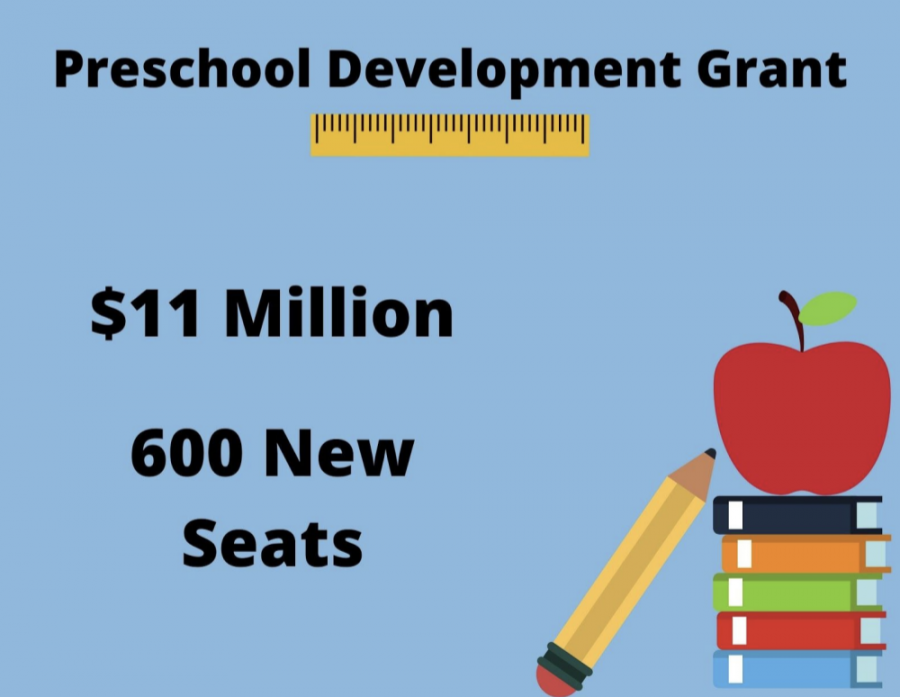Louisiana to increase access to early childhood education centers
The Louisiana Department of Education received an $11 million federal grant for early childhood education centers. The money will be used to create 600 new seats in early childhood education centers.
February 11, 2020
Louisiana is not exactly known for their education, and according to a 2019 study from the U.S. News and World Report, the state ranked number 48th in the country.
The Louisiana Department of Education is looking to change that perception after receiving a federal Preschool Development Grant for $11 million in 2020 and $33 million over three years. The grant is a part of the Administration for Children and Families, which promotes “the economic and social well-being of families, children, individuals and communities.”
The grant will create at least 600 new seats in 2020 at early learning sites for low-income children from birth to age 3, improve the quality of early childhood education programming, and “build the capacity of local communities to meet the needs of their youngest learners.”
The Louisiana Department of Education received an $11 million federal grant for early childhood education centers. The money will be used to create 600 new seats in early childhood education centers.
Out of a total of 49 states that applied, Louisiana was one of only 20 states to be awarded the preschool grant and Louisiana State Superintendent John White said how important receiving the grant is to the future success of education in Louisiana.
“Since 2012, Louisiana has positively transformed its early childhood education system, boosting it to No.8 in the nation,” said White, citing a ranking by the Bipartisan Policy Center. “We are proud this hard work has again been recognized by the federal government in the form of funding support. This new grant award marks an important step toward solving the state’s crisis of access, particularly among children, birth to age 3, who are most in need.”
Louisiana State Representative Stephanie Hilferty, who helped create the Louisiana Early Childhood Care and Education Commission, stressed the importance of making a child’s environment as educationally rich as possible and how the federal grant will help her goal of doing just that.
“These early education centers are vibrant places for these children,” said Hilferty, “these are areas where they are learning socio-emotional skills, learning how to be good humans, learning how to control their emotions as well as learning the alphabet and their numbers and those basic building blocks are going to help everything down the line during the educational process”
The grant will also double the number of Ready Start Network pilots, an early childhood service, increasing access for infants to age one-year-olds, the most in-demand and costly age range. Hilferty stressed how important it is to target this age range so that once children reach kindergarten, they aren’t already behind their classmates and feeling disenfranchised.
“It would be like putting me in a calculus classroom,” said Hilferty, “I would become bored potentially, disengaged and disruptive so I think it is really crucial that our youngest learners enter into the K through 12 system prepared and at grade level.”
To help increase access to the early childhood education centers, a portion of the federal will also be given to the Child Care Assistance Program that will provide financial tuition to low-income families.
Even with the help of the preschool grant, White and Hilferty both said that there is still a lot more work to do.
“Significant barriers remain for thousands of working families in need of quality care and education for their children,” said White, “We must continue to work together to find solutions and close this gap.”
“We understand that this is our future workforce and yes the future is in 20 years, but that is important,” said Hilferty.







